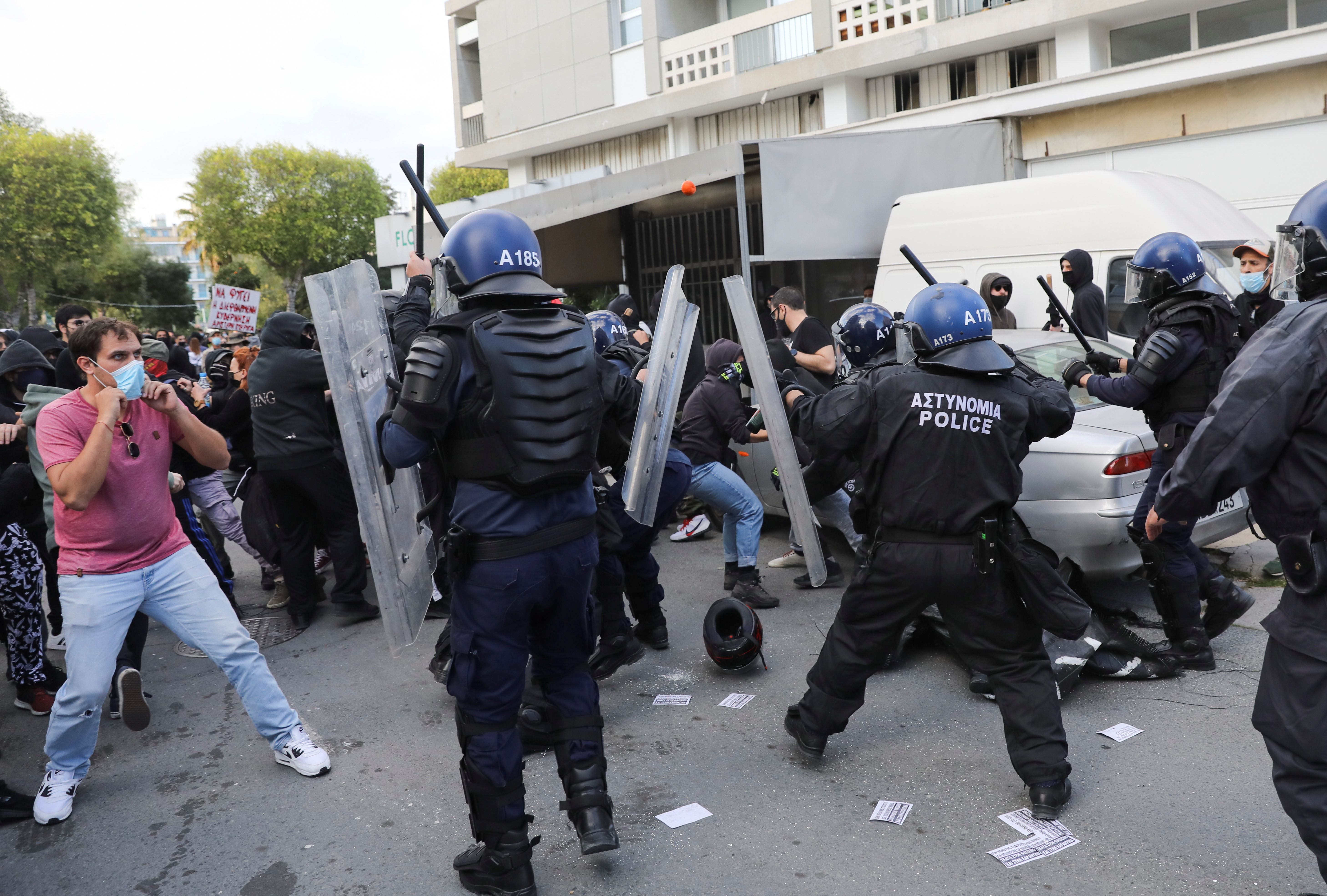A second protest march against state authoritarianism has been announced for next Saturday, following scenes of police brutality in their efforts to disperse protesters at last weekend’s demonstration.
“The violent repression and police brutality we faced on February 13 from the Anastasiades government fully justifies the reasons why we took, and we will take to the streets again,” organisers wrote on the Facebook page announcing the event.
Several people were injured during the Nicosia protest from police use of a water cannon, teargas and batons to disperse those who were demonstrating amid a ban on mass gatherings.
Following public outcry citing excessive force by riot-squad officers, opposition parties called on Justice Minister Emily Yiolitis to resign, while it remains unclear who gave the orders to police.
The new announcement called on people and organisations to participate in the march which will start at 4pm from Kolokasi park, same as the first one.
“Neither the batons, nor the pepper sprays, nor the riot police will stops us,” the organisers said.
The groups organising the protest reminded the public how an officer was shown in photos stepping on a protestor’s neck while he was immobilised on the ground by other officers, and how a 25-year-old woman suffered an eye injury and might have her sight impacted after being injured when she was lost her footing due to the force of water from the cannon.
Police were called to stay away from the upcoming peaceful protest “having proved they pose a danger to public health”.
“We are confident we can protect our march, regulate circulation and adhere to health protocols better than what the force showed they can do,” they said.
According to the announcement, protestors will be wearing face masks and will adhere to social distancing.
Among their demands, organisers also requested the release of the 11 people arrested at the protest.
The protest targets “failed pandemic management” which includes the implementation of unconstitutional measures such as the mandatory rapid testing of employees and the ban on mass gatherings which is interpreted as an attempt to silence those who speak up about corruption.
Their demands include investments in public health and education instead of the police force and military equipment, as well as the immediate support of workers, the unemployed, migrants, and asylum seekers who are affected by the pandemic.







Click here to change your cookie preferences